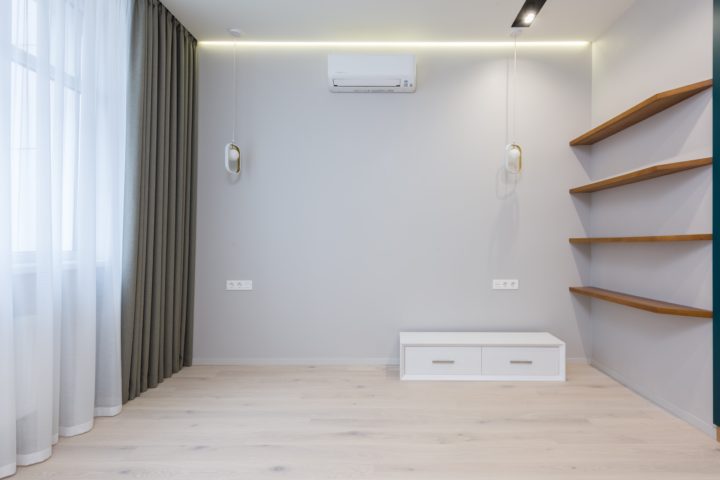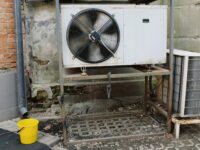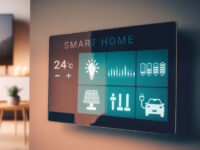The following contribution is from another author.
Air conditioning enables us to remain comfortable even on the hottest days of the year. Many of us have difficulty imagining life without it for even a few hours.
So which air conditioning system is the best for cooling your home? You now have many choices, all of which are more energy-efficient than they were a decade ago. Suppose you’re replacing an older system with a new one. In that case, you’ll save money on your energy costs just by updating your cooling system.
The best air conditioning system for your house is determined by your budget, home structure, and flexibility. You may want to consider overall efficiency, especially if you want to keep the energy costs and carbon footprint as low as possible. Consider the advantages and disadvantages of each of the main kinds of air conditioning systems to help you select the finest air conditioner for your house.
Central Air Conditioning
If you live in an older house, installing central air conditioning may be impractical or might even be impossible. This is because you will need to snake ducts (small ducts) through existing walls, including cutting and patching holes in the drywall or plaster.
In certain instances, these wall studs are not spaced adequately for this task, or you may encounter other difficulties when you begin poking in an older house’s infrastructure. Additionally, you’ll need an outside area for the compressor, which may be challenging if you reside in a crowded metropolitan environment.
Central air conditioning systems often offer the greatest energy efficiency ratings, but they also have the highest initial installation expenses. That’s because it’s expensive to install ductwork to transport air through the walls of your house, and a large, motorized system doesn’t come cheap.
Mini Split Systems (Ductless)
While split systems are less expensive than central air, they may become pricey if you add one to each room. The unit is big and, unlike central air, is not hidden; you’ll need to install a large, white box on your wall, which will be visible throughout the year.
If you don’t mind the appearance, this system provides some additional advantages, such as the ability to regulate specific room temperatures rather than depending on a central thermostat and the capacity to heat your house as well. Home’s HVAC system with heating and cooling systems could be a perfect choice and overall solution for every temperature.
A ductless unit may be a great choice if you want central air but cannot install a ducted system in your house. This air conditioning system is wall-mounted and needs just a tiny hole to be made, making installation simpler.
The primary advantage is that no ductwork is required: air is blown directly into the area where the ductless system is installed. Due to the absence of long ducts for airflow to travel through, ductless systems are very efficient since air does not warm up while flowing through your walls to reach your room.
Window Air Conditioners
Window units are also an excellent option for renters since they do not need permanent installation changes such as drilling holes in walls or installing ductwork. When you cannot make permanent modifications to your living area, a window unit makes more sense as a temporary air cooling since it is portable.
Window air conditioning is a scaled-down counterpart of an oversized central air conditioner. It’s compact enough to fit in any window. It works by placing the compressor outside your house and channeling cold air via curved vents just inside the window.
They are usually very simple and easy to install. However, larger units may need extra support to remain in place in the window. Window air conditioners are less efficient than central air and ductless units. As a result, they are often used to cool a small area.
If you live in a big, open-concept house, a window unit may fail to meet your cooling requirements. They are, however, ideal for rooms in older houses where a door can be closed to retain cool air. They enable each family member to regulate the temperature of their room.
Portable A/C Units
While portable air conditioners are not as effective as window units, they are an excellent option for tenants who move often and don’t want to carry around a large window unit. They are the perfect option for anybody who does not have a window to install an air conditioner.
Suppose you lack a window near an outlet or have casement windows that cannot be closed adequately around a window unit. In that case, portable air conditioning is an excellent option. A simple venting system enables you to vent hot air via a sliding door or even a casement window, making it a great choice for renters.
Portable A/C systems combine the convenience of a window unit with the mobility of a portable unit. These air conditioners are usually smaller and lighter than conventional window units, making them simpler to transport or roll into place. They are often built with more flair to match your décor and have a smaller profile to fit into compact places.
How to Select an Appropriate Air Conditioner?
After considering the advantages and disadvantages of various A/C units, it’s essential to examine certain particular characteristics before making a purchase. The following are the most critical ones for your air conditioner:
Sizing: It is critical to choose the correct size of the air conditioner according to your space. If the air conditioner is too tiny for your big living room, you will never achieve a comfortable temperature.
Fan Setting: Check the fan settings of the air conditioner you’re considering to ensure you have complete control over the amount of fresh air flowing into your room. This will make you feel cooler more quickly and assist you in sleeping better.
Convenience Features: Select a thermostat that assists you in achieving the ideal temperature. You may want to invest in a remote control that allows you to change fan speeds as well as cooling settings from the comfort of your bed or sofa. Numerous A/C systems now have energy-saving features that may help you save energy throughout the season.
Conclusion
The ideal air conditioner for you is determined by your living circumstances, the size of your room, and the comfort and convenience aspects essential to you. Once you’ve determined the kind of air conditioner you want, you can begin comparison shopping to find the best unit for your house in terms of price and features.
















